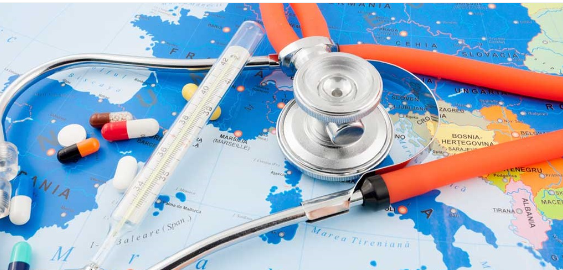"Travel Health" opens up new horizons, but it's essential to prioritize your health to fully enjoy your journey. Whether you're embarking on a leisurely vacation, business trip, or adventure abroad, taking proactive steps to maintain your well-being is crucial. Here’s your comprehensive guide to travel health:
Before You Go: Preparing for a Healthy Journey
-
Consult Your Healthcare Provider:
- Before traveling, schedule a visit with your healthcare provider. Discuss any pre-existing conditions, vaccinations required for your destination, and medications you might need during your trip.
-
Travel Insurance:
- Consider obtaining travel insurance that covers medical emergencies, including evacuation if necessary. This provides peace of mind in unexpected situations.
-
Medications and Prescriptions:
- Ensure you have an adequate supply of any prescription medications you take regularly. Pack them in your carry-on luggage to avoid issues with lost baggage.
-
Vaccinations and Immunizations:
- Research and get vaccinated according to the recommendations for your destination. Some countries require proof of certain vaccinations for entry.
During Your Trip: Tips for Healthy Travel
-
Stay Hydrated:
- Drink plenty of water, especially in warmer climates or during long flights. Dehydration can lead to fatigue and other health issues.
-
Eat Wisely:
- Enjoy local cuisine, but be cautious with street food and uncooked items that may pose a higher risk of foodborne illnesses. Opt for freshly prepared foods and fruits you can peel yourself.
-
Practice Good Hygiene:
- Wash your hands frequently with soap and water, especially before eating or handling food. Use hand sanitizer if soap and water are not available.
-
Protect Against Insects:
- Use insect repellent containing DEET, wear long-sleeved clothing, and sleep under mosquito nets in areas where insect-borne diseases like malaria or Zika virus are prevalent.
-
Sun Protection:
- Protect your skin from harmful UV rays by wearing sunscreen with a high SPF, sunglasses, and a hat. Avoid prolonged sun exposure, especially during peak hours.
Returning Home: Post-Travel Considerations
-
Monitor Your Health:
- Pay attention to any symptoms that develop after returning home. If you feel unwell, especially with symptoms like fever, seek medical attention promptly.
-
Jet Lag Management:
- Minimize jet lag by adjusting your sleep schedule before departure, staying hydrated, and exposing yourself to natural sunlight upon arrival.
-
Review Your Travel Experience:
- Reflect on your trip and any health-related challenges you encountered. Use this knowledge to better prepare for future travels.
Emergency Preparedness:
- Familiarize yourself with local emergency numbers and healthcare facilities at your destination.
- Keep a copy of your medical history, allergies, and emergency contacts in your wallet or travel documents.
Conclusion:
By prioritizing travel health and taking proactive measures, you can enhance your overall travel experience and minimize the risk of health-related issues. Preparation, awareness, and sensible precautions ensure you stay healthy and enjoy your adventures to the fullest. Safe travels!

